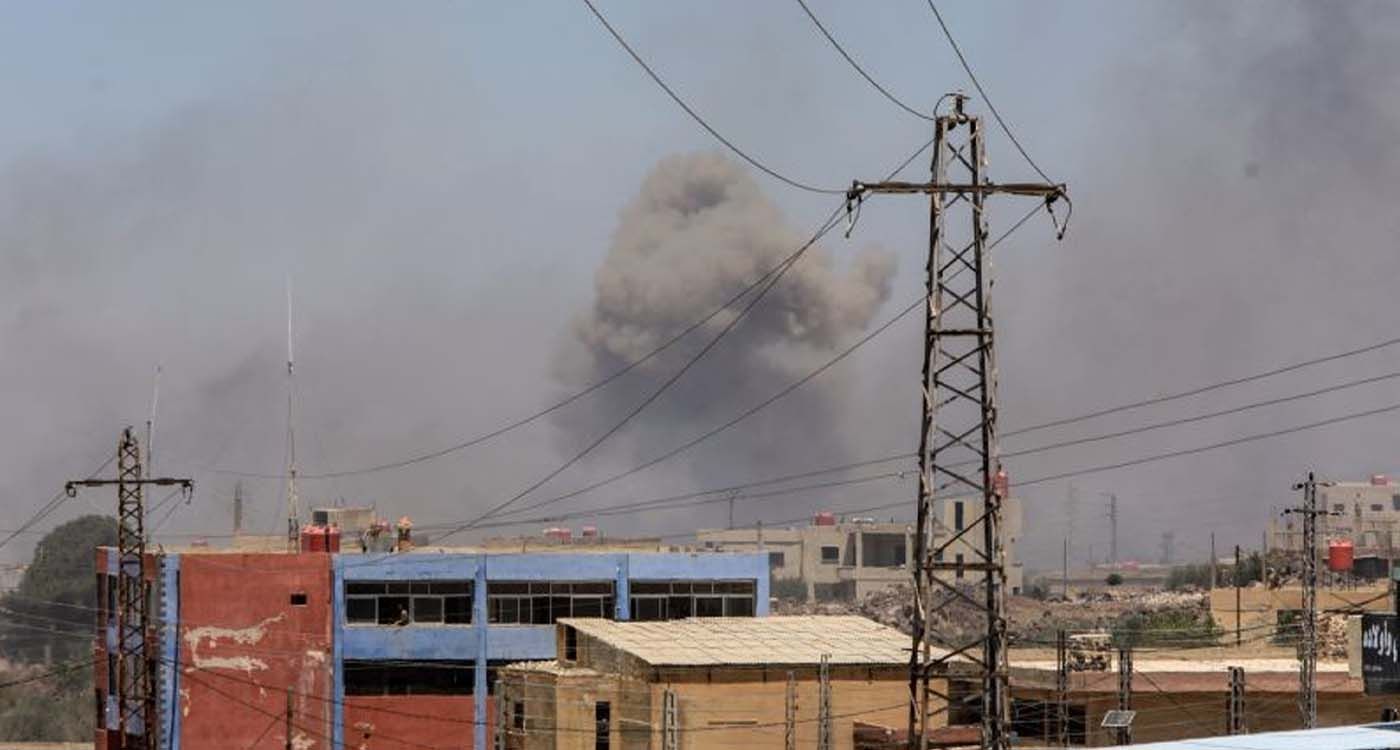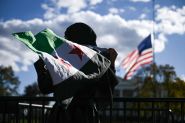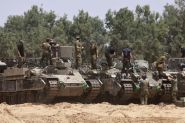- Home
- Middle East
- Sweida Caught Between Damascus and Israel

©Bakr Alkasem / AFP
The majority-Druze city of Sweida in southern Syria has been thrust into an unprecedented spiral of violence since Sunday, as fierce clashes between the Syrian army, backed by Bedouin militias, and local Druze armed groups have escalated dramatically. The fighting has been marked by intense combat, summary executions, a deepening humanitarian crisis, and growing regional tensions.
A ceasefire announced by Damascus on Tuesday quickly unraveled, holding for only a few hours. By dawn the following day, hostilities had resumed in the northern districts of Sweida and nearby villages, including Al-Maslakh, Rasas, Qanawat, and along the Al-Koum road, where mortar fire rained down on residential areas, triggering widespread panic among civilians.
Mounting Death Toll
According to the Syrian Observatory for Human Rights (SOHR), the death toll has climbed to at least 248. The casualties include 92 Druze fighters, 28 Druze civilians, -21 of whom were reportedly executed by government forces- 138 members of Syria’s security forces, and 18 Bedouin militiamen allied with the regime. Eyewitnesses have described harrowing scenes of executions, looting, and acts of desecration targeting both homes and places of worship.
A Fragmented Druze Opposition
A source close to the situation says that internal security forces have now established de facto control over the city. Most of the Druze armed groups, poorly equipped and outgunned, have retreated to the southern part of the province to avoid direct confrontation. Only the faction loyal to Sheikh Hikmat al-Hijri, a powerful spiritual figure, continues to resist in northern Sweida.
In contrast, other influential religious and clan leaders, such as the Akl sheikhs Youssef Jarbouh and Hammoud al-Hannaoui, have shown openness to a negotiated integration into the order imposed by Damascus.
Still, according to the same source, much of the Druze population has lost all faith in the Syrian authorities, whom they see as either hostile, disorganized, or incapable of providing basic security.
A Severe Humanitarian Crisis
The humanitarian toll is worsening by the day. The military campaign has caused the collapse of essential services. Electricity has been cut off across most of the city and its surrounding areas. A local source reports severe shortages of basic goods due to ongoing fighting and road closures. The same source also notes an exodus of armed Druze toward the south of the province.
Druze fighters lack both the numbers and the weaponry to hold their ground, while even the regular Syrian army appears increasingly disorganized. As the crisis deepens, more civilians, faced with the threat of total devastation, are beginning to consider accepting the regime’s terms as a lesser evil.
Israel on High Alert
In response to the escalating conflict, Israel has stepped up its military activity in southern Syria. On Wednesday afternoon, the Israeli army carried out intense "warning" airstrikes against the presidential palace in Damascus, as well as against the headquarters of the Syrian Ministry of Defense.
But first, Israeli jets struck a Syrian army position along the Al-Thaalah road in the Sweida countryside, as well as the 52nd Brigade in Al-Hirak, eastern Daraa province, according to SOHR.
Another strike targeted a group of General Security personnel near the police headquarters in Sweida, where ambulances were later seen arriving at the scene. The following day, Syria’s state news agency SANA reported a second Israeli strike on Sweida within 48 hours. The drone attack came just one day after Syrian government forces redeployed in the city—despite repeated Israeli warnings.
Israel responded swiftly, vowing to intensify its strikes if Syrian forces did not withdraw from southern Syria, and especially from Sweida. Shortly thereafter, the Israeli military claimed responsibility for another strike—this time on the entrance of the Syrian army’s headquarters in Damascus. Syrian state media reported that two people were wounded in the capital’s center but did not disclose further details.
On Wednesday, Israeli Defense Minister Israel Katz declared that Israel “will not abandon the Druze in Syria” and demanded the immediate withdrawal of Syrian forces from Sweida. He also warned that Israel would “increase the intensity of its responses against the regime if the message is not understood,” citing the longstanding Israeli policy of demilitarizing southern Syria, a doctrine in place since the fall of Bashar al-Assad.
Read more




Comments